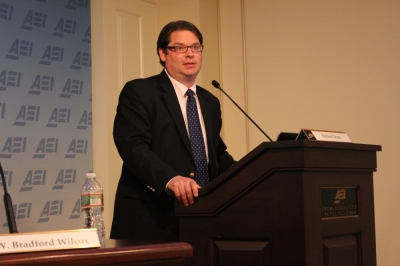Do religious couples have happier marriages? Multi-nation reports finds it's complicated

Certain secular progressive couples and religious conservative couples are the most satisfied with their relationships, according to a new report.
The Institute for Family Studies and the Wheatley Institution of Brigham Young University released a report titled, “The Ties that Bind: Is Faith a Global Force for Good or Ill in the Family?”
The researchers analyzed data on family issues from the World Values Survey and the Global Family and Gender Survey, looking at 11 nations: Argentina, Australia, Chile, Canada, Colombia, France, Ireland, Mexico, Peru, the United Kingdom, and the United States.
Regarding overall relationship quality, the researchers found a "J-curve" for female respondents when going along the ideological spectrum from most progressive to most conservative. Women at the bookends of the spectrum had the best marriages — progressive couples and traditional religious couples showed the highest relationship quality in their marriages while the nominally religious scored lowest with their marriages.
Respondents were placed into three categories based upon how often they and their spouses attend religious services: shared secular, mixed and less religious, and highly religious.
Progressive gender views were those who mostly or completely disagreed with the statement, “It is usually better for everyone involved if the father takes the lead in working outside the home and the mother takes the lead in caring for the home and family.” Those who mostly or completely agreed with the statement were labeled "traditional."
With these variables, respondents fell into six categories: 1) shared secular, progressive; 2) shared secular, traditional; 3) less/mixed religious, progressive; 4) less/mixed religious, traditional; 5) highly religious, progressive; 6) highly religious, traditional.
Secular women with progressive gender views married to secular men with progressive gender views scored a 16.52 on an additive index score that includes relationship attachment, commitment, satisfaction, and stability. This was the third highest after the two highly religious categories.
Women in shared secular traditional relationships, less religious or mixed religion progressive relationships, and less religious or mixed religion traditional relationships scored the lowest.
Women in highly religious progressive relationships scored second highest, at 16.91, and women in highly religious conservative relationships scored the highest at 17.64.
The only two categories where the women showed higher marriage quality than men on average were shared secular progressive and highly religious traditional.
"... women in shared secular, progressive relationships enjoy comparatively high levels of relationship quality, whereas women in the ideological and religious middle report lower levels of relationship quality, as do traditionalist women in secular relationships; but women in highly religious relationships, especially traditionalists, report the highest levels of relationship quality," noted the Executive Summary of the report.
"In sum, the impact of gender ideology on contemporary family life may vary a great deal by whether or not a couple is highly religious, nominally religious, or secular."
W. Bradford Wilcox, Jason S. Carroll and Laurie DeRose, the researchers who authored the Executive Summary, explained in a New York Times column published Saturday that “extremely liberal” and “extremely conservative” women were the most likely to be “very happy” with their marriage, at 69 percent and 72 percent, respectively.
“In fact, in listening to the happiest secular progressive wives and their religiously conservative counterparts, we noticed something they share in common: devoted family men,” they said.
“Both feminism and faith give family men a clear code: They are supposed to play a big role in their kids’ lives. Devoted dads are de rigueur in these two communities. And it shows: Both culturally progressive and religiously conservative fathers report high levels of paternal engagement.”
The report also found that data for the 11 countries suggested that religious couples have more kids, better relationships and better sex, but the levels of domestic violence are the same as non-religious couples.
“When it comes to relationship quality in heterosexual relationships, highly religious couples enjoy higher-quality relationships and more sexual satisfaction, compared to less/mixed religious couples and secular couples,” noted the report’s Executive Summary.
“For instance, women in highly religious relationships are about 50% more likely to report that they are strongly satisfied with their sexual relationship than their secular and less religious counterparts.”

Another finding was that religious couples averaged slightly more children than couples who rarely or never attend worship services, with the researchers concluding that “religion’s positive influence on fertility has become stronger in recent decades.”
“Today, people ages 18-49 who attend religious services regularly have 0.27 more children than those who never, or practically never, attend,” continued the Executive Summary.
“The report also indicates that marriage plays an important role in explaining religion’s continued positive influence on childbearing because religious men and women are more likely to marry compared to their more secular peers, and the married have more children than the unmarried.”
While concluding that religion is “a force for good in contemporary family life” for the sampled 11 countries, the report acknowledged that domestic violence was equally likely to happen between religious couples as secular couples, with researchers stating that “intimate partner violence (IPV)” did not “differ in a statistically significant way by religiosity.”
“Slightly more than 20% of the men in our sample report perpetuating IPV, and a bit more than 20% of the women in our sample indicate that they have been victims of IPV in their relationship,” noted the Executive Summary.
“Our results suggest, then, that religion is not protective against domestic violence for this sample of couples from the Americas, Europe, and Oceania. However, religion is not an increased risk factor for domestic violence in these countries, either.”



























